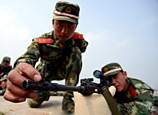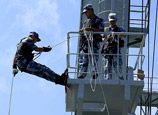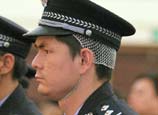
Making a profit is already hard for many in the industry, with operating costs still soaring higher than incomes in some cases.
Even the larger operators say they are finding it hard to keep their figures in the black, according to some industry experts.
Despite the tighter budgets, operators say they have no choice but to continue spending on new fleets, staff and marketing.
"The clearance fee from Beijing increased recently and the cost of flying from Beijing to Boao in Hainan province also rose by about 100,000 yuan ($16,180) this year," said one manager.
High taxes are also making some wary of buying new aircraft, especially import taxes, with operators having to pay 4 to 5 percent customs duty and 17 percent value added tax on new aircraft purchases.
"That tax is one reason why I set up my company in Hong Kong," said Ji Xingzhuo.
The high cost of jet fuel in China is another consideration, Ji added, and his fleet is usually refueled overseas.
And on top of those issues, Ji said he has to deal with a shortage of qualified staff.
"Professional managers, who understand aircraft, sales and management, are very rare in China right now," he said, "as are pilots."
He hired a management company to run Air Taxi when it first started, and since then he has trained his own workforce — but now he finds that competitors try to poach members of his team.
The problem is becoming more serious, he added, and as a result he has had to raise wages to hold onto employees, as they are often tempted away by higher salaries.


















 Different walks of life in China : Labor Day
Different walks of life in China : Labor Day


![]()
